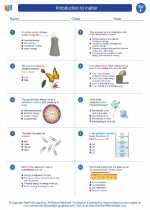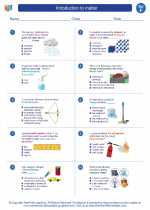Lysosomes
Lysosomes are membrane-bound organelles found in the cytoplasm of eukaryotic cells. They are known as the "garbage disposal" or "recycling center" of the cell because they contain enzymes that break down waste materials and cellular debris. Lysosomes play a crucial role in cellular digestion, waste removal, and maintaining cell homeostasis.
Structure of Lysosomes
Lysosomes are small, spherical organelles that are surrounded by a single membrane. The interior of the lysosome is acidic and contains a variety of hydrolytic enzymes that are capable of breaking down different types of biomolecules, such as proteins, lipids, carbohydrates, and nucleic acids.
Functions of Lysosomes
Lysosomes perform several important functions within the cell:
- Waste Disposal: Lysosomes break down and recycle cellular waste materials, such as damaged organelles, foreign substances, and worn-out cellular components.
- Cellular Digestion: Lysosomes are involved in the digestion of nutrients that are taken up by the cell through processes such as endocytosis and phagocytosis.
- Autophagy: Lysosomes are responsible for the process of autophagy, which involves the engulfment and degradation of unnecessary or dysfunctional cellular components.
- Cell Death: Lysosomes are involved in programmed cell death (apoptosis) by releasing enzymes that break down cellular components and initiate the dismantling of the cell.
Study Guide for Lysosomes
Here are some key points to remember about lysosomes:
- Identify the structure of a lysosome and its contents.
- Understand the concept of lysosomal enzymes and their role in breaking down biomolecules.
- Describe the functions of lysosomes in waste disposal, cellular digestion, autophagy, and cell death.
- Explain the importance of lysosomes in maintaining cellular homeostasis.
- Recognize the significance of lysosomal dysfunction in diseases such as lysosomal storage disorders.
It's important to understand the role of lysosomes in maintaining cellular health and how their dysfunction can lead to various pathological conditions.
Remember to review the structure, functions, and significance of lysosomes to gain a comprehensive understanding of this essential organelle.
.◂Science Worksheets and Study Guides Sixth Grade. Introduction to matter

 Worksheet/Answer key
Worksheet/Answer key
 Worksheet/Answer key
Worksheet/Answer key
 Worksheet/Answer key
Worksheet/Answer key
 Vocabulary/Answer key
Vocabulary/Answer key
 Vocabulary/Answer key
Vocabulary/Answer key
